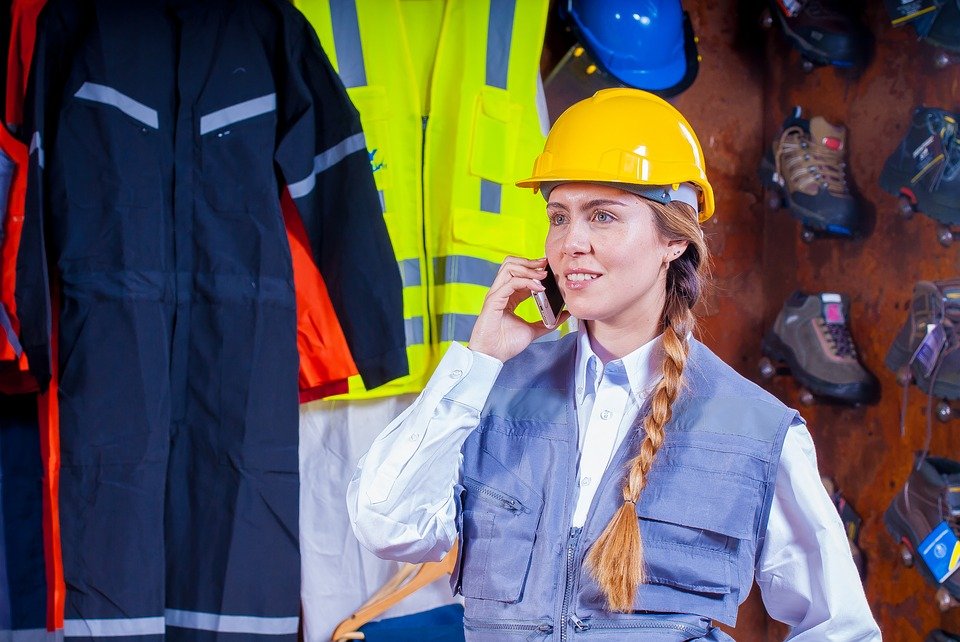Advancing safety with mobile technology
Here Stephen Westley, Global Mobile Communications, looks at the importance of mobile technology as a means of consistent, reliable communication in the construction industry.
Mobile technology plays a vital role in the management of assets and employees in most businesses today, whether it’s a colleague sending updates to a manager about their whereabouts, or the ability to access company servers and information remotely. For businesses with a workforce based on multiple sites, such as construction firms, quantity surveyors, engineers and project managers, there is even more to gain – mobile solutions can not only help drive efficiencies and achieve long-term productivity gains, but can also provide additional protection for workers. The latest rugged devices can withstand the elements that field workers are subject to, and offer additional call functionality in the event of emergencies.
A mobile duty of care
According to data from the UK’s Health and Safety Executive (HSE)[1], each year in the construction sector, around three percent of workers sustain a work-related injury, with an estimated 66,000 self-reported injuries. Worryingly in 2015/16, there were 43 fatal injuries to construction industry workers, a rate of 1.94 per 100,000. The health and safety of lone workers is a major concern for construction firms. Could the implementation of new mobile technology help prevent further fatal injuries? Perhaps not, but it will help to give managers the peace of mind that they have taken steps to avoid or control risks where necessary.
While prevention is the ultimate goal, there must also be tools in place to provide rapid help when accidents occur. This means providing a means of consistent, reliable communication with management, team members and emergency services. This equipment should include specialised mobile devices featuring a pre-installed Lone Worker Protection App, which can be easily accessed at the touch of a button. This offers an audible and text alarm, sending a worker’s GPS location and alert message to their manager or colleague. For lone workers in more hazardous working conditions, an app like this will allow an accelerometer to be set, triggering an alarm if the user suffers a fall. With these features, businesses can be sure their workers will receive emergency care quickly when needed.
Constant connectivity
Ensuring worker safety means choosing a mobile solution which offers both the connectivity of a high-end smartphone, and the additional functionality of a specialised device. For example, dual SIM card functionality allows for multiple network connections, reducing the potential for workers experiencing mobile black spots. These communication precautions can also prove invaluable when it comes to boosting business efficiency. For example, a ‘push to talk’ button will allow a manager to instantly communicate one-to-one or one-to-many, providing cohesion among workers based in separate locations.
Tough on the outside
Anyone with a smartphone will know how fragile these devices can be – dropping a device from even hand-height can easily result in a cracked screen. Frustrating for the everyday phone owner; a potential health and safety hazard if you’re a lone worker on a remote site. One of the biggest challenges is the lack of mobile devices on the market which are both powerful and rugged enough to withstand harsh environments. Only a fraction of mobile devices offer an IP68 rating (meaning the handset is protected against complete dust ingress and can withstand continuous immersion in water beyond 1m), or robust build quality that conform to MIL-STD 810G. However, most of these devices do not offer the additional functionality of a specialised handset – one which is rugged, powerful and supports functions like Lone Worker Protection and dual SIM – which would allow managers and business owners to comply with regulations, and could help reduce those HSE figures in the years to come.
Smart competition
Construction remains a high-risk industry, and accidents are not uncommon. According to HSE’s figures[2], the combination of work-related illness and workplace injuries in the sector leads to 2.2 million working days lost annually. This will significantly impact a company’s bottom line, and indicates that not enough is being done to ensure worker safety.
Improvements in mobile technology mean that devices are now available which incorporate the functionality of a high-end smartphone with specialised features and a ruggedised exterior. Mobile technology of course plays a central role in improving business efficiency in other areas too, with smartphones providing features like real-time information and asset sharing, as well as other workforce management tools. In order to maximise the benefits offered by mobile, while simultaneously verifying the safety of a workforce, the construction industry needs to adopt specialised rugged mobile devices which are tough on the outside, and smart on the inside.
Ultimately, the safety of a workforce should be a top priority for any manager today, regardless of the industry. In high risk sectors, this is more important still. A manager is liable for their workforce’s safety, and the financial and moral implications of not complying regulations are simply too high.
References:
[1] http://www.hse.gov.uk/statistics/pdf/fatalinjuries.pdf
[2] http://www.hse.gov.uk/statistics/industry/construction/

Stephen Westley, Director, Global Mobile Communications
Global Mobile Communications is a re-seller of rugged mobile devices, recently collaborating with DEWALT to produce a rugged device aimed at professionals working in the construction industry.
Advancing safety with mobile technology
Here Stephen Westley, Global Mobile Communications, looks at the importance of mobile technology as a means of consistent, reliable communication in
Safety & Health Practitioner
SHP - Health and Safety News, Legislation, PPE, CPD and Resources Related Topics
Drug and alcohol testing in a UK airport environment
Unleashing the power of emerging technologies in EHS
Passing the baton – Meet the 2024 IOSH President




[…] Source: Stephen Westley, Dewalt – Advancing safety with mobile technology – SHP Online […]